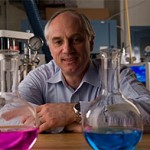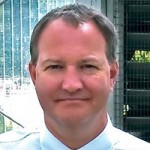Aired on 6/24/2105
Session 3 in the Future of Sustainable Transportation Fuels webinar series took place July 28, 2015 and included the emerging technological possibilities for captured CO2 from waste streams (or directly from the atmosphere) and using it as a pre-concentrated carbon source to produce transportation fuels.
CO2-to-Fuels is a research trajectory where the policy risks are unknown because of its intersection with the complex politics of mitigating the risk of climate change and constructing carbon policy. Some think affordable CO2-to-fuels would be a major feat of science and engineering that is achievable – others question both achievability and the wisdom of a technology that recycles the carbon back to the fuels system.
To See The Webinar –> https://www.screencast.com/t/SLN9PerMjRvY

Moderator: Dr. Thomas Seager from Arizona State University,conducts research related to environmental decision making and life-cycle environmental impacts of alternative energy technologies. He currently leads a project funded by the National Science Foundation that applies game theory to develop new strategies for teaching ethical reasoning skills relevant to sustainability, science, and engineering graduate students. He joined the School of Sustainable Engineering and the Built Environment at Arizona State University in 2010, and has previously taught at Rochester Institute of Technology and Purdue University.

Dr. Klaus Lackner is the director of the Center for Negative Carbon Emissions and a professor at Ira A. Fulton School of Engineering at Arizona State University. Dr. Lackner’s recent research interests include closing the carbon cycle by capturing carbon dioxide from the air, carbon sequestration, carbon foot-printing, and innovations in energy and infrastructure systems.

Dr. James E. Miller (Jim) is a chemical engineer who has been involved in energy, materials, and chemical processing research at Sandia National Laboratories for over 23 years. His work has touched on diverse topics ranging from hydroprocessing, to oxidation, lignin depolymerization, treatment of radioactive waste and automobile exhaust, and desalination. Over recent years his efforts have been largely focused on solar thermochemistry for the production of synthetic fuels from carbon dioxide and water, and for the past year on metal oxide-based thermochemical energy storage.

Timothy Zenk is the Executive Vice President of Business Development for Algenol and formerly served as senior vice president of corporate development for Sapphire Energy, Inc. At Algenol, Zenk oversees business development, government affairs, public policy, marketing and communications. Zenk has years of leadership and notable success with public and privately held companies, including Sapphire Energy, Edelman Global, and Telecommunications Systems. In addition, he has held key roles in government, working for presidential administrations, U.S. congressional members and state governors.
